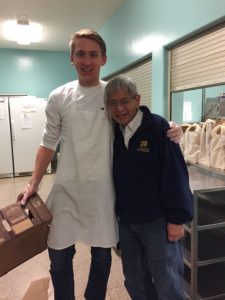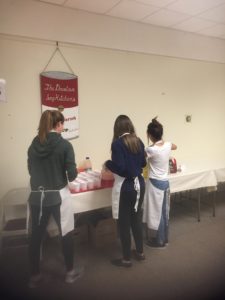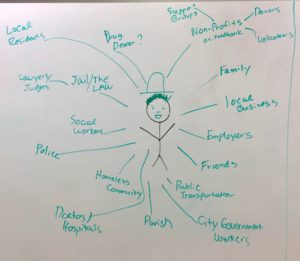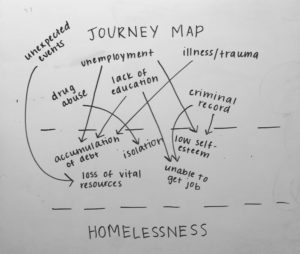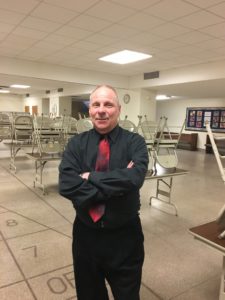
Date: 3/3/17
Type: Expert Interview
Location: Downtown Soup Kitchen at First United Methodist Church
User: Robert Powell is a part-time pastor at the First United Methodist Church where the soup kitchen is held on Mondays, Wednesdays, and Fridays. Yuwei, Paul, and I interviewed him to get his expertise on the homeless population he comes into contact with almost every day.
Male, middle aged
Retired firefighter, part-time pastor
Summary of Interview
One of the biggest issues with South Bend’s homeless population is drug and alcohol abuse, mental illness, and Give the homeless population
motivation to want to change by giving them the resources to do so. A good example of a structured progra for the homeless population is Hope Ministries. They give people a place to sleep and provide meals, but they require residents to take classes in order to better themselves.
Key Takeaways
Many of the city’s resources are not wholesome enough to keep homeless people off the streets. Places like the Center for the Homeless give the homeless a place to sleep for the night, but it does not stop them from panhandling during the day. These places give them no structure or incentive to live more independently and responsibly.
Memorable Quotes
“Some of them [homeless people that stay at the Methodist Church] come from drug court. They have alcohol and drug problems. Rather than the judge send them to jail because they’re good people, they send them upstairs.”
“There are requirements they have to do, go to classes and go to Oak Lawn and go through what is called IOP, intensive outpatient program and it’s a good program, but you can’t force somebody to change their life.”
“It’s a six month program they go through [Hope Ministries] and if they do that and they graduate they can live there for two years.”
“Bringing them in at 8 o’clock at night and kicking them out in the morning isn’t the thing to do because during the day they’re panhandling, doing their drugs and alcohol.”
“They need to send people out in the field and talk to these homeless people and give them a program—you can’t tell them to go and do this and do that…they’re not used to showering, used to doing laundry, it’s like training a child again. You forget these people are coming from the streets.”
“You can’t force them, you can’t change somebody, they’re going to have to want to change.”
“The city is trying to do a quick fix…there is no structure, no professional people, no counseling to help these people.”
